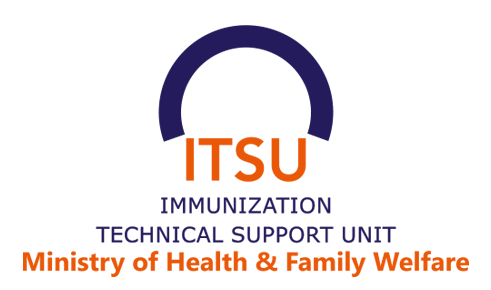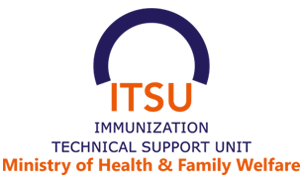Rationale for having a dedicated AEFI Secretariat
Having a dedicated AEFI secretariat is a responsible way of improving AEFI detection and strengthening vaccine safety monitoring with a view to rapidly and effectively identify, record and manage AEFI related issues.

Even as advancements in modern medicine are making it possible for vaccine-preventable infectious diseases to decline, there remains concern around the risks associated with vaccines. Adverse events following immunization (AEFI) relate to any untoward medical occurrence which follows immunization and which does not necessarily have a causal relationship with the usage of the vaccine. A dedicated Secretariat that focuses on AEFI, its surveillance, recording, monitoring and documentation is supporting national targets related to case identification, case management and vaccination coverage, and lately has included COVID-19 vaccine too.
ITSU’s role in managing AEFI
In the year 2012, a dedicated and independent AEFI Secretariat was established within the Immunization Technical Support Unit (ITSU) by the Ministry of Health & Family Welfare (MoHFW), Government of India. The aim was to strengthen AEFI surveillance in the country. ITSU acted as a Secretariat to the National AEFI committee and the four national sub-committees on media, laboratory, causality assessment and investigation.
Historically, the AEFI surveillance programme had been initiated in the late 1980’s under the Universal Immunization Programme. As part of the surveillance, some alarms and deaths were recorded although a lot of cases were getting missed and the surveillance mechanisms were not as robust. Once the AEFI surveillance guidelines were developed in 1991–1992 and other AEFI formats finalized in 2005 a lot of case reporting became easier. These guidelines were later updated in 2010 and 2012.
The AEFI Secretariat has about 20 people comprising the data team, those following up on case completion, case detection and analyzing trends apart from zonal and external consultants. Since 2012, much progress has been made, even though a lot more needs to be done. A major focus of the team has been to step up case investigations. More and more AEFI cases are being reported, systems are being set up for states to report and record and state and district AEFI committees have been involved in conducting case investigations on the field.
The MoHFW reaches out to ITSU with request to send teams at the state and district level to investigate cases and AEFI related deaths. Over the last 6-7 years, approximately 20–30 deaths have been reported and a repository of 12,000–13,000 cases reported. Analysis of data and even batch-wise analysis is being done. This kind of close partnership between MoHFW and ITSU demonstrates confidence and trust which the ministry has in ITSU and the AEFI Secretariat.

The AEFI secretariat’s work can largely be divided into the pre COVID-19 and post COVID-19 phase. In the pre COVID phase, work was largely focused on routine immunization (RI) as adverse events, vaccinating more than 85% and administering vaccines through the government health system. Most RI cases were recorded through the government health system. Few private institutions too shared their data. Till September 2020 all focus was on RI. Post October 2020, gears shifted to modify AEFI surveillance system for adults and COVID-19 vaccines.
At the central and state level data is analyZed and investigations, causality assessment done. Allergic reactions are common. The AEFI Secretariat developed a system to provide early management for support at the vaccination site itself. This has been done also while rolling out the new vaccines like Rotavirus vaccine (RVV), Measles Rubella (MR) and Pneumococcal conjugate vaccine (PcV) to see what adverse events to look out for. Special sensitisation has been done of District Immunization Officers (DIO) on reporting/recording cases. Any anticipated adverse events or those that get reported such as intestinal blocking are duly trained. Also ITSU staff and MoHFW personnel are invited to attend trainings and capacity building sessions at state, district, sub-district level.
ITSU developed healthy partnerships with donor agencies, grassroots NGOs, research organizations and academia like the Lady Hardinge Medical college. ITSU was also invited to represent India in Global Safety Meetings to share its experience. The data generated, compiled and analyzed by ITSU remains one of its key strengths and is shared regularly with several national and international bodies like the Comptroller General of India, National Technical Advisory Group on Immunization (NTAGI), regulators of other bodies, government, WHO and international agencies working in immunization. The AEFI Secretariat is called upon to respond to the Right to Information (RTI), Parliamentary questions and other media related queries. The team works closely with the communication team and the health ministry to develop key messages related to advocacy and behaviour change.
ITSU has been hailed as a success in India and has served as a reliable technical arm of the ministry. Several countries with a similar health system and population are reaching out to ITSU in India to guide them and help them set up a similar entity with a view to strengthen and expand their immunization coverage.
Core functions within AEFI
Strengthen AEFI Surveillance
- Conduct regular meetings of National AEFI committee/ sub-committees, causality assessment and pharmacovigilance partners
- Process severe AEFI cases after screening for eligibility by National AEFI committee
- Support policy decisions on AEFI surveillance and processes
- Provide strategic vision and technical inputs to expand AEFI surveillance
- Support capacity building for AEFI surveillance through national and regional trainings
- Conduct special case investigations of cluster deaths and hospitalisations
Strengthen AEFI Surveillance
AEFI Surveillance data management
- Analyse AEFI database for taking programmatic action and improve regulatory action
- Manage SAFEVAC with support from National Health Portal Centre for Health Informatics
- Upgrade SAFEVAC for reporting minor AEFI from lower levels
AEFI Surveillance data management
Implement quality AEFI management system
- Support implementation of National Quality Assurance Standards for AEFI surveillance Develop guidelines, assessment criteria, checklists, SoPs etc with Quality Improvement Division, NHSRC
- Facilitate capacity building activities for QMS at state level and demonstrate processes in districts
- Conduct regular internal and external audits at national level
Implement quality AEFI management system
Develop technical guidelines and resource materials
- Supported MoHFW in preparing guidelines and training materials
- Developed training videos and other interactive learning tools
- Finalised special investment protocol for serious AEFI
Develop technical guidelines and resource materials
Snapshot of recent initiatives in the area of AEFI
- Record over 5-fold increase (398 to 2662 cases) in reporting of serious/severe AEFI cases between 2012 and 2019
- Reported increase in average number of AEFI cases per district from 1.3 cases in 2015 to 3.7 cases in 2019
- 26 National AEFI committee meetings held from 2012 till August 2020
- 4730 serious/severe AEFI cases classified (2014–2020* data as on 31 July 2020) as per WHO/CIOMS criteria of classification for causality.
- Developed National AEFI Surveillance & Response: Operational Guidelines, Communication Guidelines in 2015
- Developed National Quality Assurance Standards (NQAS) for AEFI surveillance in 2016
- Certified national-level processes for AEFI surveillance as per NQAS in 2016
- Approved criteria for assessment of Quality Management System activities at state, district and PHC/session sites in 2019
- Supported implementation of QMS-AEFI across states (initiated in Goa, Gujarat, Karnataka, West Bengal)
- Developed training video & operational guidelines on use of Injection Adrenaline for managing anaphylaxis by health workers in 2018
- Reported all serious and severe AEFIs on SAFEVAC since Jan 01, 2020
- Revised National AEFI Guidelines


